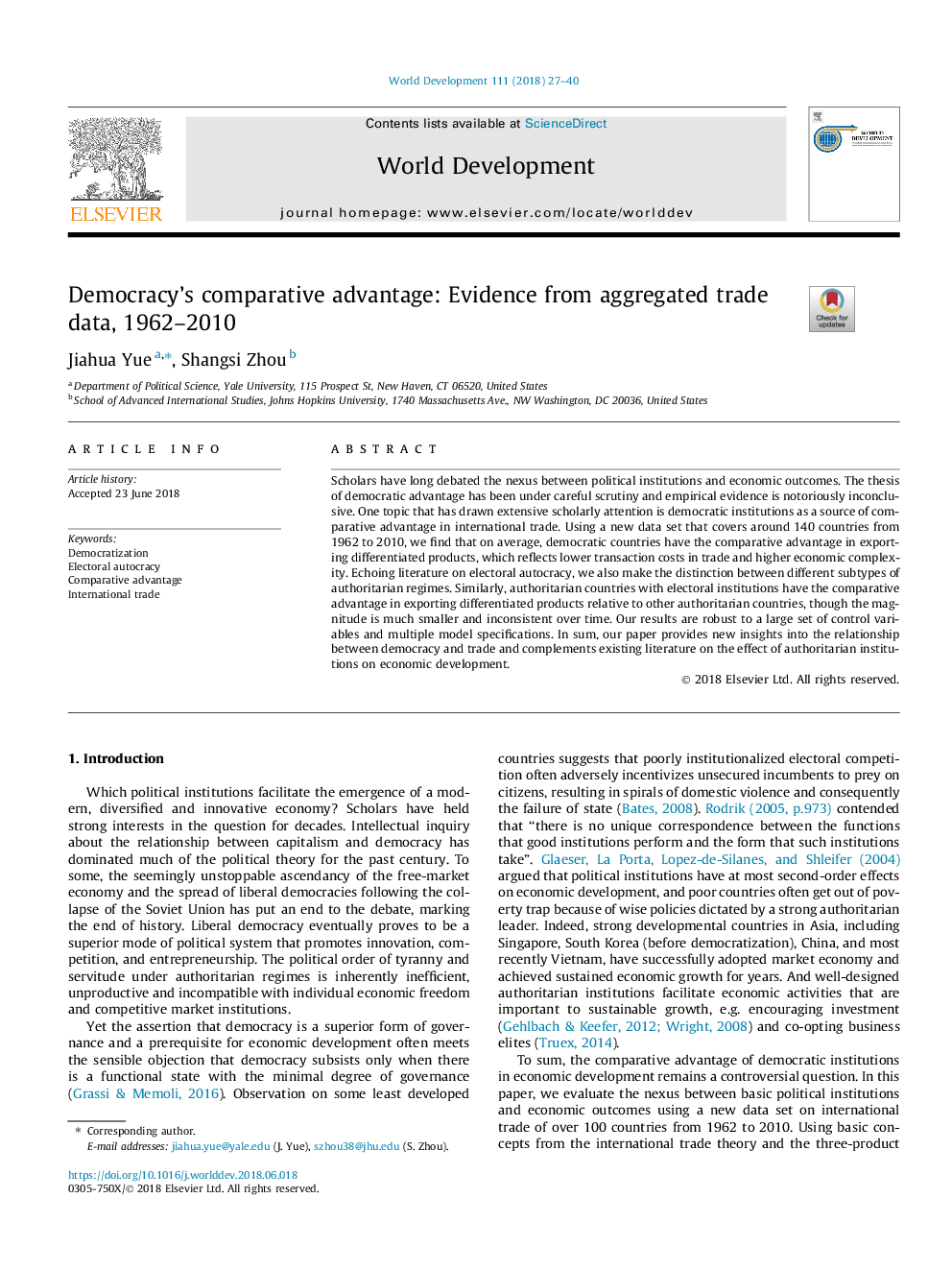| Article ID | Journal | Published Year | Pages | File Type |
|---|---|---|---|---|
| 7391048 | World Development | 2018 | 14 Pages |
Abstract
Scholars have long debated the nexus between political institutions and economic outcomes. The thesis of democratic advantage has been under careful scrutiny and empirical evidence is notoriously inconclusive. One topic that has drawn extensive scholarly attention is democratic institutions as a source of comparative advantage in international trade. Using a new data set that covers around 140 countries from 1962 to 2010, we find that on average, democratic countries have the comparative advantage in exporting differentiated products, which reflects lower transaction costs in trade and higher economic complexity. Echoing literature on electoral autocracy, we also make the distinction between different subtypes of authoritarian regimes. Similarly, authoritarian countries with electoral institutions have the comparative advantage in exporting differentiated products relative to other authoritarian countries, though the magnitude is much smaller and inconsistent over time. Our results are robust to a large set of control variables and multiple model specifications. In sum, our paper provides new insights into the relationship between democracy and trade and complements existing literature on the effect of authoritarian institutions on economic development.
Related Topics
Social Sciences and Humanities
Economics, Econometrics and Finance
Economics and Econometrics
Authors
Jiahua Yue, Shangsi Zhou,
